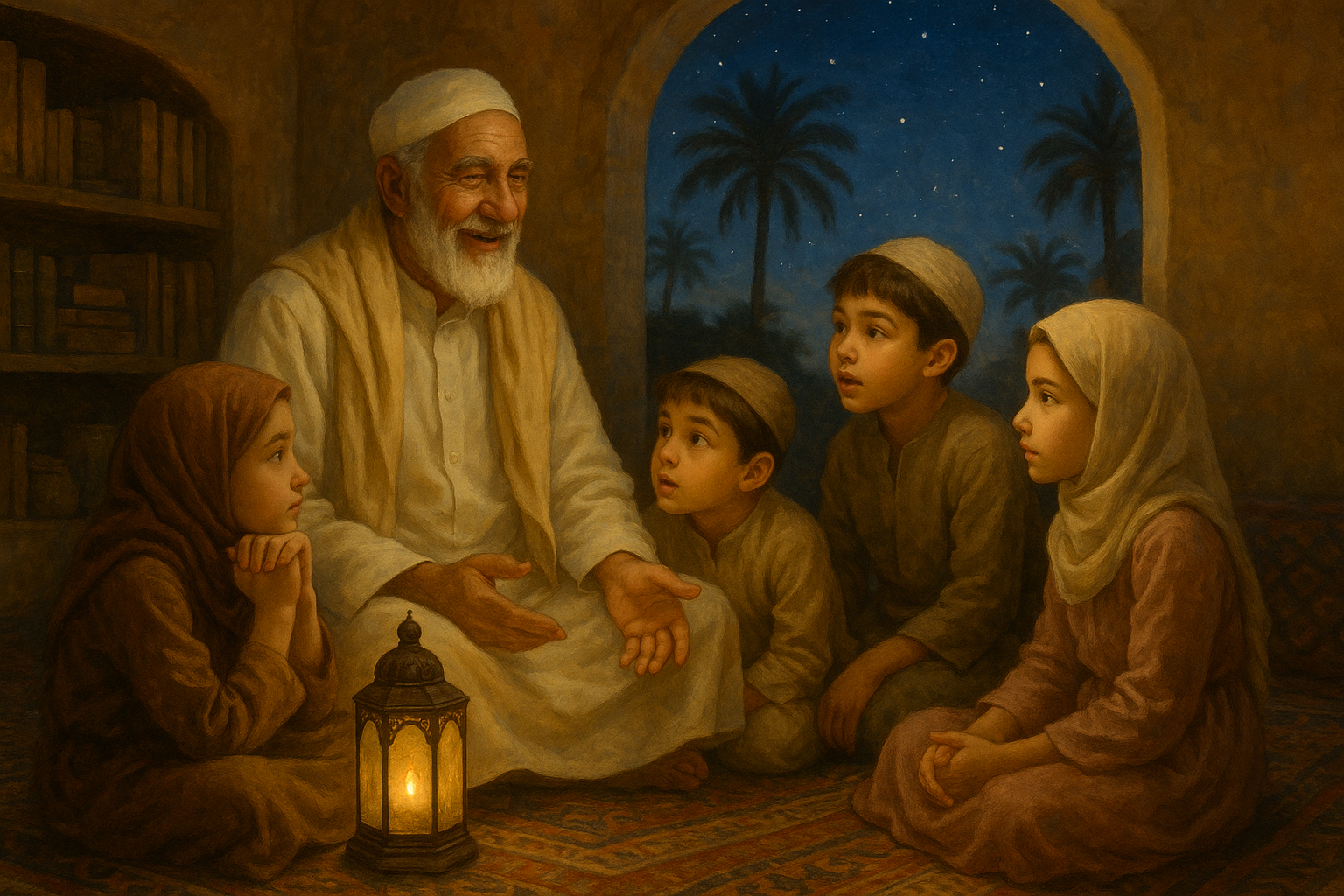The Story of Adam is one that transcends culture, geography, and time. Rooted deeply in the Quranic narrative, it unfolds the account of the first human being and the first prophet—Prophet Adam (AS)—offering reflections that continue to resonate across generations. This powerful Islamic storytelling journey reveals not just how life began but also why it began the way it did.
The Divine Act of Creation
The Adam and Eve creation story, as told in Islam, begins with Allah forming Adam from clay, carefully, deliberately, and with purpose. He was given life through Allah’s divine command and elevated as the first bearer of knowledge among creation. Adam was taught the names of all things, symbolising the gift of intellect, reason, and language.
[Watch The Story of Adam on our Youtube channel. Don’t forget to hit the like and subscribe button, your support is highly appreciated! Here’s a link to it: Click Here.]
Eve (Hawwa) was created as Adam’s companion, and both were placed in a beautiful paradise, given access to everything except one specific tree. The prohibition was clear—but not without divine wisdom.
Visit our YouTube channel or watch the video right here. Please dont forget to like, subscribe and share!
The First Test of Free Will
The entry of Iblis (Satan) into the story marks the first instance of temptation. He refused to bow to Adam and vowed to mislead humanity. When Adam and Eve ate from the forbidden tree after being deceived, their vulnerability was exposed—but unlike the idea of original sin in some traditions, Islam teaches that they were forgiven after sincere repentance. This emphasises Allah’s divine guidance and mercy.
Lessons from Prophet Adam’s Story
There are countless Prophet Adam lessons embedded in this narrative. First, the concept of accountability. While Adam made a mistake, he accepted it and turned to Allah in repentance, demonstrating the model of humility and spiritual consciousness. Second, the importance of knowledge. Adam’s ability to name things showed that knowledge is a defining characteristic of humans. Third, the power of mercy. Allah’s acceptance of Adam’s repentance shows that we are never too far gone to return.
Shared Legacy in Abrahamic Faiths
The story of Adam is not exclusive to Islam. It is central to Abrahamic faiths—Judaism, Christianity, and Islam. While interpretations may vary, the overarching message remains similar: a beginning rooted in divine will, human error, and the hope of redemption. Understanding these connections deepens interfaith dialogue and respect.
Here are some of our recent and highly recommended must reads!:
- Zul-Qarnain and the Wall of Gog and Magog – A Mysterious Legacy Revisited
- Ozzy Osbourne Dies at 76: The Prince of Darkness Bids Final Farewell
A Reflection for Today’s Generation
In our modern world, the beginning of life as revealed in Islamic tradition holds profound relevance. It teaches us that human beings are more than material; we are spiritual entities with purpose, dignity, and the ability to choose. This human origin story reminds us that error is part of being human, but growth lies in seeking forgiveness and striving to do better.
More Than a Tale
The Story of Adam is more than a tale from the past—it is a divine map of the human journey. Through it, we learn that the path of mistakes and mercy is also the path to enlightenment. Whether you’re reflecting on Islamic storytelling or seeking wisdom on life’s purpose, this timeless narrative offers a beacon of hope, knowledge, and unity.





